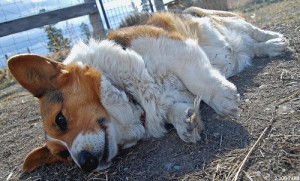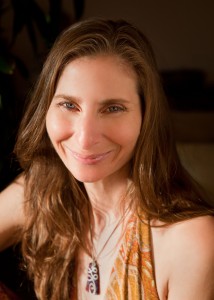Today, SevenPonds speaks with Betsy Trapasso, an end of life guide, advocate and film producer. She has a Master’s in Social Work from the University of Southern California and a Bachelor’s in Psychology from Fairfield University. Betsy has many years of experience from her work as a research associate at Yale University’s School of Medicine, Department of Psychiatry, and as a Los Angeles hospice social worker.
Kimberly: What was it like growing up with your grandfather, who was an advocate for bringing hospices to America?
Betsy: My grandfather was mayor of my town for the first 20 years of my life. I grew up in politics, and I would go to meetings with him all the time. The town I grew up in was Branford, Connecticut, which is just outside of New Haven. At Yale in 1974, a nurse named Florence Wald wanted to bring hospice to the US, and my grandfather wanted the first hospice to be in my hometown.
The hospice was always there [growing up], though it was only when I became a social worker that I understood how important it was to my life. I’ve worked at various medical places for psycho-pharmaceutical research and domestic violence, and I’ve worked everything as a psychotherapist, but I’ve found my calling, my passion and my gift as a hospice social worker.
Kimberly: Is there a lot of overlap between your past work as a hospice social worker and your responsibilities as an end of life guide?
Betsy: I mainly do the guide work for friends, or people who call me looking for advice. People are always calling me and asking, “What is hospice? What is it like? Can you talk to this person for me?” It actually is just talking to people who are going through the process and don’t know what to do, who to turn to, or even how to be with somebody who is dying.
People are always calling me and asking, “What is hospice? What is it like? Can you talk to this person for me?”
I do guide work on a personal level, but I also get calls from people who know that I can help because I have worked in hospice and as a community liaison. What they feel is normal. For a dying person, letting go can be incredibly complex. They have to deal with anything from emotions and spirituality to finances and making a will.
Kimberly: Can you say a little more about what you do in advocacy and how it is different or similar to being an end of life guide?
Betsy: I just formed a foundation called the ImMortal foundation with two of my friends. It’s a nonprofit organization dedicated to educating people on all kinds of end of life issues. The first thing we are going to do is film a documentary where we go all over the world and visit different cultures. We are going to look at those which are not afraid of dying, in hopes that Americans may learn not to be afraid of end of life issues. When I worked with my patients who were dying, they told me that they wanted me to educate people and be an advocate. They would say “I wish I knew about this earlier, that my family knew about this earlier, or that we talked about it earlier” and they would tell me how it would have helped them live their life in a different way.
When I worked with my patients who were dying, they told me that they wanted me to educate people and be an advocate.
That’s where my advocacy comes in. I’m the hostess of Death Cafe, Los Angeles, where I hold two Death Cafes a month. I try to reach every culture, ethnicity and spirituality. I’ve retraced my steps from when I was a hospice social worker in LA, when I would go all over LA and meet with different cultures and help them with death. I wanted to get people talking about it.
Kimberly: Can you tell me more about the documentary you are working on? Does it have a title yet? Are there specific places where you want to go to?
Betsy: We are calling it ‘Bringing Death to Life’. We have to look at how much funding we can get before we decide all the places we will travel, but we would love to go to South America and the Amazon. We also want to go to Buddhist cultures where they talk about death from the beginning of life as something never to be feared. I would love to get Americans talking about it their whole life. You can’t tell someone to not be afraid, but if you show them how it is done in other cultures and places, then it might be easier.
Kimberly: In addition to your documentary work, you have also recently hosted a Death Cafe for pets. Can you tell us what that was like?

Credit: 2-Dog-Farm on Flickr
Betsy: I think I am up to my 19th Death Cafe, and in every one I’ve held, someone has mentioned losing a pet. Sometimes they felt bad because they were talking about losing a pet when other people were talking about losing a child, but they would insist, “It’s important to me.”
Kimberly: When you hosted the pet Death Café, did you notice any different attitudes towards losing a pet versus losing a human loved one?
Betsy: People’s relationship with pets is always unconditional love, whereas sometimes the relationships that we have with humans can be complicated. People would talk about how they could always go to their pet when they were having a hard time. The pets were always there. It was surprising how sad it is, and how there was a void in their life.
People’s relationship with pets is always unconditional love
Death Cafés are a safe space. People in our culture will listen only for so long before they say, “it’s grief, get over it,” and this exact same situation happens with pets. It was just people crying for that same love. There were questions too, like what to look for when a pet is dying, and what you can do to help them.
Kimberly: The death of pets tends to be the first experience that people have with death as well.
Betsy: Exactly. And you think of all the times people say, “The cat went to the farm.” You don’t know how to teach a child about death. One of the things that they are talking about with Death Cafes as well is “How young is too young?”
Kimberly: Do you have any advice for when to start talking about death to children?
Betsy: I think it is whatever age you feel is appropriate. I know there are experts out there with books that can help you figure out how to start the conversation. It’s important to turn it into a normal part of life. I have had people come to me in therapy, and even in Death Cafes, who have said that they were very young when they had a grandparent die. Their families wouldn’t let them go to the funeral. There are people who will remember things like that 50 years later. Every child is different too, and that needs to be taken into account as well.
Kimberly: Thanks for your time!
Betsy: Thank you!
Related SevenPonds Articles:
- What are Death Cafes? An Interview with Jon Underwood, Part I
- What is a Death Cafe? An Interview with Jon Underwood, Part II
- Death Cafes Create a New Kind of Space to Talk about Death and Dying

 What is an End of Life Advocate? An Interview with Betsy Trapasso
What is an End of Life Advocate? An Interview with Betsy Trapasso



 Our Monthly Tip: Make an “In Case of Death” File to Ease Loved One’s Grief
Our Monthly Tip: Make an “In Case of Death” File to Ease Loved One’s Grief
 Passing of Beloved Comedian Births a New Comedy Festival
Passing of Beloved Comedian Births a New Comedy Festival















